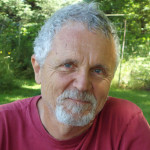Castlegar/Nelson to host events questioning the safety of Genetically Engineered foods
Two renowned Canadian scientists will be speaking in Castlegar at 12 p.m. on Dec. 6 to answer questions and concerns regarding genetically engineered (GE, also called genetically modified or GM) foods and human health. As well, they will present at 7 p.m. at Nelson’s United Church.
The Selkirk College Student Union (SCSU) Enviro Club is excited to announce they’ve partnered with Nelson’s Kootenay Co-op, the Society for a GE Free BC and the Greenpeace Vancouver Local Group to bring us Genetically Engineered Foods and Human Health: A Cross-Canada Speaker’s Tour, featuring Dr.s Thierry Vrain and Chiv Chopra.
Might GMOs have anything to do with a rise in allergic reactions to foods? Antibiotic resistance? Hormonal imbalances such as diabetes? Does anyone really know for sure? Do GE corn and soy have Bt insecticide built into them? Because Health Canada hasn’t said they’re dangerous, are they safe?
The 12 to 2 p.m. public event in Selkirk College’s Room K-11 will be an opportunity to learn from a genetic engineer what GMOs are, and about safety testing from a former Health Canada scientific advisor. Local MP and emceee Alex Atamanenko will facilitate what could be a lively question period.
Vrain and Chopra will address the topic of GE foods and human health from both a scientific and a regulatory perspective, and will suggest what can be done about it. Dr. Thierry Vrain is a retired soil biologist and genetic engineer who — after a 30-year career with Agriculture Canada – is now very worried about what GE technology holds for our future. Dr. Shiv Chopra, a former Health Canada senior scientific advisor who blew the whistle on inadequate testing of Monsanto’s GE bovine growth hormone (rBGH), will explain why he believes the regulatory process can be compromised to serve corporate interests.
GE crops are not an extension of traditional breeding methods (or hybridization). They are created by inserting new gene sequences into organisms, often from unrelated species, including from animals into plants, and usually through the use of a gene gun. To quote Dr Vrain, “The basic assumption of the science is questionable – it’s impossible to insert new genes into an organism with predictable results.
“When we started with genetic engineering in the 1980s, the science was based on the theory that one gene produces one protein. But we now know, since the human genome project, that a gene can create more than one protein. The insertion of genes in the genome through genetic engineering interrupts the coding sequence of the DNA, creating truncated, rogue proteins, which can cause unintended effects.”
SCSU Enviro Club tour organizer Tamara Ann Goble says, “I’m quite excited to get this event happening, especially at the school. Young people need to know about it. We are not science experiments or at least I don’t want to be one. People have the right to know what they are eating. GE crops have not been demonstrated to be safe. After becoming more informed last year and attending the Castlegar March Against Monsanto it’s become a pretty important subject in my life, including from an ecological perspective. Most of the crops are monocultures, reduce biodiversity, and cater to the use of heavy pesticide use.”
Given that within Canada GE salmon, apples, and alfalfa are close to entering the marketplace, it is more important than ever for Canadians to have the opportunity to learn and discuss this pressing matter and to discover how they can advocate for change.
For more information on the Castlegar event, see the Facebook page GE Foods and Human Health: A Cross-Canada Speaker’s Tour or https://www.facebook.com/events/642672945754360/
Biographies and details of the cross-Canada tour are at gefreebc.wordpress.com/gefoodstour


























Comments